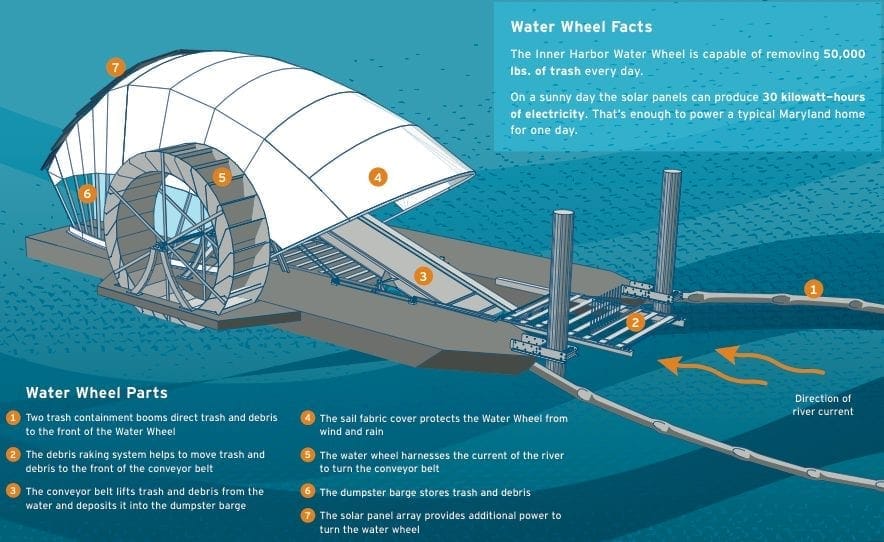Ocean plastics are the grown-up version of microplastics small plastic particles in the environment that are generally smaller than 1 mm (0.039 in) down to the micrometer range. This plague of epic proportions is not a giant pile of garbage that you might see at the tip it is an invisible cancer of the oceans and scourge of the food chain…..now for the good news!
Here are 5 awesome programs tackling the problem and some ways you can help too!
1. Australian Marine Debris Initiative
Heidi Taylor is the brainchild of Tangaroa Blue, the organisational home of the (AMDI). Tangaroa Blue is a network of volunteers, communities and organisations that contribute data from rubbish collected during beach and river clean-up events to the AMDI Database, and then work on solutions to stop the flow of litter at the source. This means that not only are just picking up the never-ending flow of rubbish the AMDI helps communities look after their coastal environment by providing resources and support programs, and collaborates with industry and government to create change on a large scale.
Heidi’s (AMDI) program is taking fighting ocean plastics to the next level with this long-term data collection to stop rubbish where it starts we think this is an epic task and she is definitely an eco-warrior.
2.Sea Bin Australia
Best mates Andrew Turton and Pete Ceglinski spent much of their childhood in the ocean and, after becoming frustrated at the amount of rubbish floating around, quit their jobs to come up with a sustainable solution.
They came up with an automated rubbish bin for marina docks called the Seabin that many hope could help reduce ocean pollution.
With the help of WA seed investors Shark Mitigation Systems, the duo designed a prototype of the bin in Perth before taking it to market in Mallorca in Spain, a marina capital of Europe.
3. Ocean Clean Up system
Boyan Slat , a 22-year old Dutch diving enthusiast who founded the Ocean Cleanup Project, has become an unlikely hero is the fight against ocean plastics.
The Ocean Cleanup proposes a larger-scale, passive method of removing marine debris in or near the ocean gyres by means of 100-kilometre (62 mi) long networks of floating barriers, anchored to the ocean floor. These V-shaped barrier networks are designed to interact with natural ocean currents, funneling plastic debris towards a central point where the plastic can be extracted by a platform and stored for transportation and recycling.
The Ocean Cleanup calls this barrier technology the Ocean Cleanup Array.[6]which has since grown into a multinational project aimed at cleansing the world’s ocean of an estimated 5trn-plus pieces of plastic debris.
4. Two Hands project
Two Hands Project is a collaborative approach to dealing with plastic pollution: take 30 Minutes and Two Hands to clean up your world anytime, anywhere.
Two Hands embodies the spirit of the huge national/international clean up days but asks what you can do with your two hands in 30 minutes, at a location near you, on any day of the year. Two Hands is taking it all back to grass roots, looking at what you can do to care for the place(s) that are near to you or important to you, anytime that you want.
They have on going events scheduled every month you can check out their website here.
5. Mr. Trash Wheel
Baltimore USA Inner Harbour Water Wheel, or “Mr. Trash Wheel” to locals, harnesses the power of water and sunlight to collect debris flowing down the Jones Falls River.
The river’s current turns the wheel, which lifts trash and debris from the water and deposits it into a dumpster barge. When the water current is too slow, a solar panel array provides additional power to keep the machine running. Full dumpsters are towed away by boat, and a new dumpster is put in place. Pretty simple, right?
Beyond that, some experts have called it the only “truly feasible” concept to harvest debris from waterways. Click below to check out a live feed of the trash wheel in action.
http://baltimorewaterfront.com/healthy-harbor/mr-trash-wheel-live-feed/

6. Adventure Science
Adventure Science allows you to help them study the sources, composition and distribution of microplastics pollution while you paddle, backpack or mountain bike. The three-year marine study is currently in preparation for publication and beginning in January 2017, If your next adventure takes you to a lake, a remote river, or glacier-fed stream we need your outdoor skills and water samples!
Click here to find out more an get involved.
